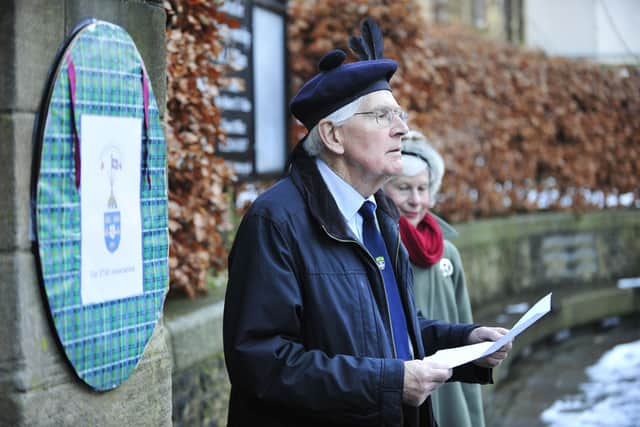Remembering Culloden - but in 2020 no gathering can take place
and live on Freeview channel 276
Michael Nevin is chairman of the 1745 Association, whose unique library is maintained at Callendar House, and which has thrown new light on the epic events of 1746 – when the retreating Jacobite army outmanoeuvred and defeated Henry Hawley’s pursuing British army on Falkirk Muir.
It has also been closely involved with the signposted battlefield walk trail in Callendar Estate, and other local heritage projects.
Advertisement
Hide AdAdvertisement
Hide AdLike so many other groups the Association has been forced to cancel numerous events from its busy annual programme – but none so emotive as the annual commemoration of the Battle of Culloden, which took place on April 16, 1746.


Now, he says, that pivotal event in Scottish and British history will still be called to mind by many during the current unprecedented crisis.
Mr Nevin said: “Culloden, the last battle fought on British soil, continues to strike a powerful emotional chord for many people and for many reasons.
“The views that they hold about the battle vary, from those who believe that it should never have been fought, or, since it was, that it was as well that the British Army won it; to those who regret the destruction of the Jacobite Cause and the progressive destruction of the Gaelic culture which followed it.
Advertisement
Hide AdAdvertisement
Hide Ad“Whatever one's views, the anniversary of Culloden has a particular resonance during the time of coronavirus.
“In remembrance of the battle’s anniversary on April 16th, we have uploaded a translation of (famous Jacobite soldier-poet and Colonel of the Edinburgh Regiment) John Roy Stuart’s poem and a rendition of extracts from it in Gaelic and English on our website at https://www.1745association.org.uk/audio-video. “The poem, composed by an officer wounded at the battle who saw many of his men fall around him and the cause to which he dedicated his life destroyed within a single hour, serves as a reminder that there was a time very much worse than today - and that, no matter how dark the outlook may seem, life goes on and better times will come”.
A century and a half after John Roy saw his dreams crumble on Culloden Moor, the poet and author Andrew Lang visited the battlefield and recorded his experience in his poem “Culloden”, a rendition of which is uploaded on YouTube at https://www.youtube.com/watch?v=gCAp-co7nOs.